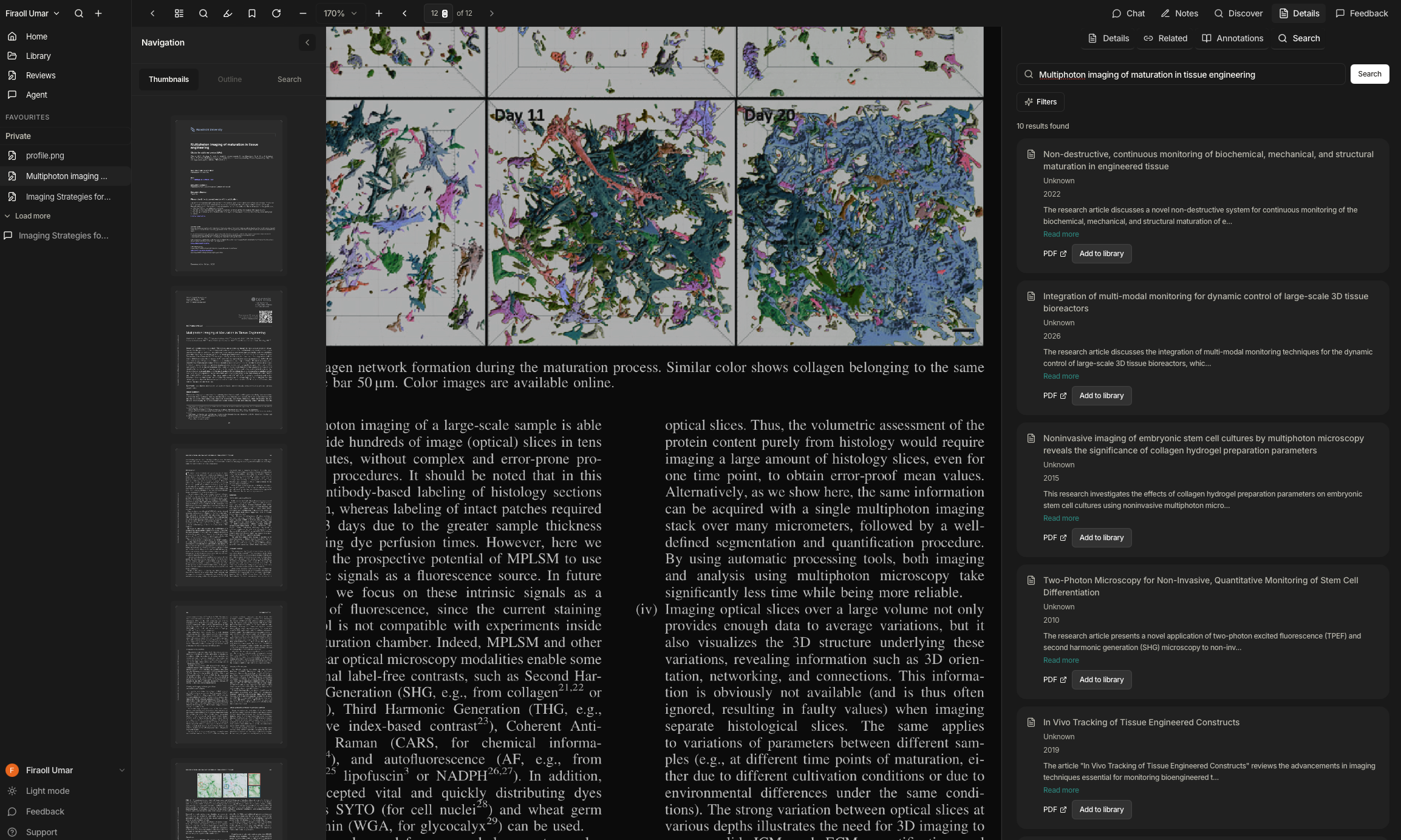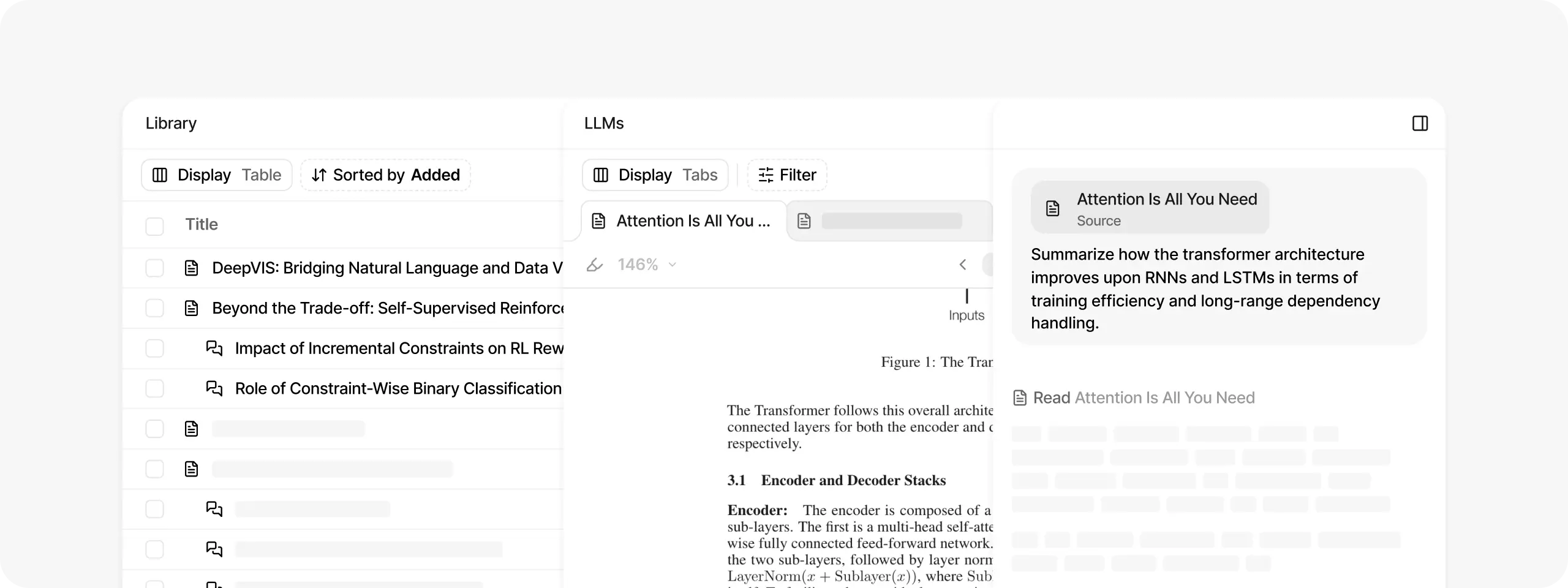Research at scale
Designed around how researchers actually work
Traceable to the source
Every answer links directly to its origin, letting you verify claims in one click
Grounded in your documents
Responses draw only from your uploaded materials without fabricated information
Citations on autopilot
Relevant references surface automatically as you write, matched to your content
Everything you need in one integrated platform
From research collection to final draft, Serenoty connects your entire workflow

Research Hub & Note-Taking
Upload and organize papers from PubMed, Google Scholar, or local files
Highlight key findings and add contextual notes in real-time
Link notes across multiple papers for cross-reference insights

Intelligent Writing Assistant
Generate research summaries grounded in your documents
Ask questions and get answers with inline citations
Auto-suggest relevant papers as you write
Smart Citation Management
Auto-format citations in APA, MLA, Chicago, and Vancouver styles
Track all references with one-click source verification
Generate bibliographies instantly from your cited sources
Collaborative Workspace
Share research collections and notes with your team
Comment and discuss findings directly within documents
Track changes and maintain version history automatically
Research Discovery Pipeline
Search millions of papers from PubMed, arXiv, and academic databases
Smart relevance ranking filters the most important papers
One-click PDF import directly into your library
Integrated Research Workspace
Side-by-side panels for research, notes, and chat—no context switching
Highlight text and send directly to chat for instant analysis
Research papers sync automatically to your library

Dark Mode for Extended Sessions
Balanced contrast that keeps you comfortable during extended sessions
Low-glare interface when you're burning the midnight oil
Seamless dark theme across search, library, and document viewer

Unified Library & Document Viewer
Organize documents and notes in customizable folders and collections
Preview and read PDFs directly within the library without switching tabs
Tag, bookmark, and annotate without leaving your workspace
Seamless Platform Integrations
Export to Google Drive, Notion, Overleaf, and your favorite tools
Sync with Canvas, Blackboard, Benchling, and academic platforms
One ecosystem from initial draft to final publication
